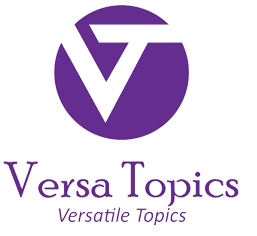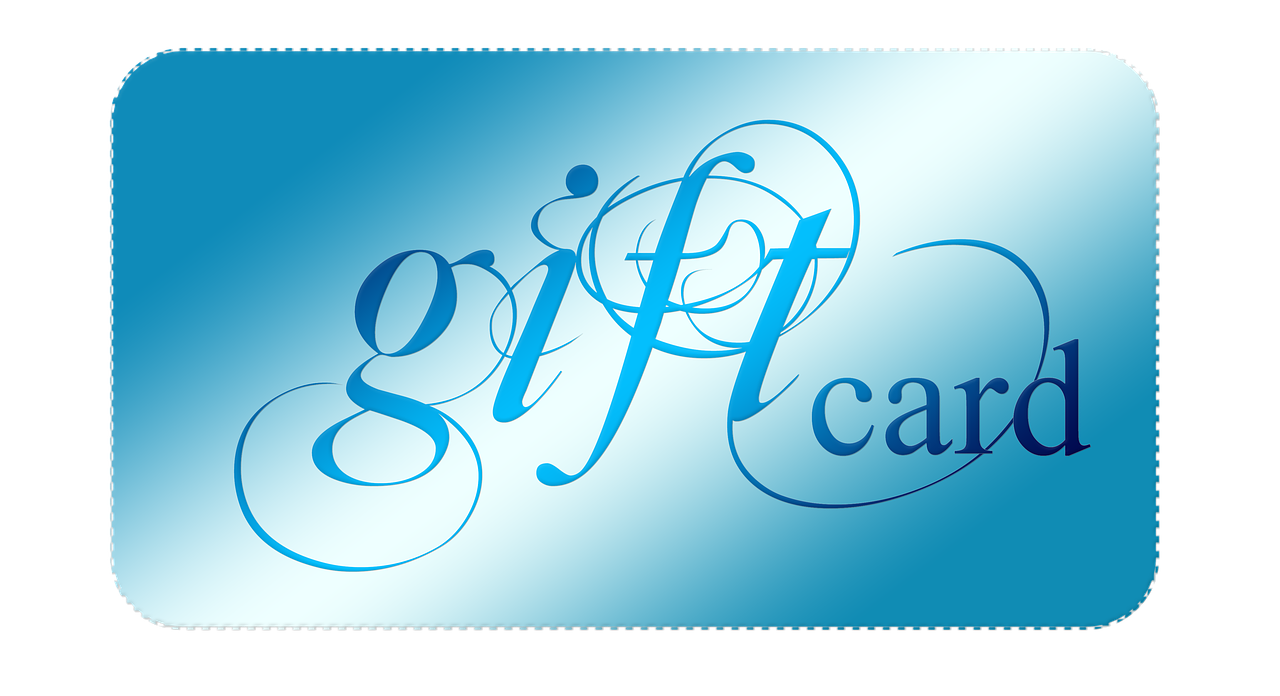Financing a home is also one of the major processes that can help you become a homeowner. If you are a first-time buyer or if you want to refinance your existing mortgage, it is essential to know the basics and principles of home financing. This can make a very big difference when it comes to the accomplishment of your objectives. Here in this guide, let me explain different facts and details regarding home financing, different loans and ways to get those.
Introduction to Home Financing
Home financing refers to obtaining the right loan facilities for the acquisition of any residential property, but it goes beyond this and also entails identifying the best financial products that suit a client’s needs in the long run as well as his or her current needs. Of course, when interest rates vary, and loan plans are offered in plenty, it is important to enlighten yourself on the basics of home loan financing so that you may be able to avoid extra costs in your lifetime plan for the loan.

Credit : Expect Best
The role of home financing Even though the importance of having financing for home purchases cannot be overemphasized, the fact remains that homeowners extract a lot of benefits from having home financing, mostly because of the diverse benefits that come with the process.
Securing the right home financing is crucial for several reasons:
● Affordability: It allows you to balance payments so they are affordable yet not too tight on your pocket.
● Interest Rates: The type of loan and the interest rate that you decide to go with will, to some extent, affect your total cost.
● Loan Terms: When it comes to loans, various terms determine your repayment period and even your freedom when it comes to budgeting.
Types of Home Loans
Concerning the financing of homes, the following types of loans are available, and they come with different qualities and standards: Here’s a rundown of the most common types:
Fixed-Rate Mortgages
Note that fixed-rate mortgages are the oldest and most common type of home loan. In this kind of loan, the interest charged is fixed, and the client repays the same amount every month until the loan term, making it more reliable.
Pros:
● Stable monthly payments
● Shield against risk in interest rates.
Cons:
● Generally, an ARM tends to have a higher initial interest rate compared to an ARM.
Adjustable-Rate Mortgages (ARMs)
However, the interest rate on adjustable-rate mortgages can fluctuate depending on the forces of the market at some point. Such loans are usually characterized by a lower initial interest rate, which can change periodically after a certain number of years.
Pros:
● higher interest rates at later periods
● Early-year reduced payment possibility
Cons:
● Monthly payments can go up in case of a fluctuation in the interest rates.
● erratic payments/unpredictability of the amounts paid
FHA Loans
FHA is short for Federal Housing Administration and these are the loans granted by the government to assist those who are purchasing a home for the first time or those who have a low credit score. FHA loans need less down payment, and the credit qualities are usually less rigorous.
Pros:
● Minimum first deposits
● The credit scores will thus be more flexible
Cons:
● Mortgage insurance for the loan is mandatory
● One may need to adhere to certain loan limits
VA Loans
VA loans for existing or past military dealers and families are provided to the armed forces by Veterans Affairs. Via: VA-guaranteed loans such as the ones in the Virginian scenario are highly concessional in that they entail no down payment together with no PMI.
Pros:
● First, there is no down payment that must be made by the clients.
● No PMI required
Cons:
● It is only open to those who meet the requirements of a veteran or an active serviceman.
● There are likely to be funding fees
USDA Loans
Purposes of USDA loans are aimed at the credit relied by low-to-moderate income purchasers in rural regions. These loans offer the most flexible cash credit facilities that can be obtained with no down payments whatsoever.
Pros:
● There is no down payment when taking a personal loan
● Competitive interest rates
Cons:
● Property must not be situated in an urban or rural growth area
● Income limits apply
Understanding Mortgage Rates
Interest rates are a very vital factor in home financing, specifically mortgages. They define how expensive it is to acquire credit to finance a house purchase and could influence those payments and the total cost of the credit.
How Mortgage Rates Work
Mortgage rates are influenced by several factors, including:
● Economic Conditions: Inflation, employment rate, and economic growth are factors that can influence interest rates.
● Credit Score: This is perhaps one of the key areas where your credit score bears a lot of impact that translates to the interest rate. Consequently, when refunds are expressed as a percentage of the premium written, higher scores are generally associated with lower rates.
● Loan Type: They include fixed rates and adjustable rates, which are not the same in terms of the rates they offer. A fixed-rate loan is often costlier at its beginning than an ARM.
● Loan Term: Usually, short-term loans come with better interest rates than longer-term loans but with a shorter period.
Fixed vs. Variable Rates
There is steady payment with fixed-rate mortgages as opposed to variable ones, where the rates vary with rising and falling market rates. Understanding these differences would help one make the right decision depending on his or her financial capacity.
The Home Financing Process
There is a key process on how home financing works, starting from the research process up to the approval of the loan. Here’s a detailed guide to help you through the process:
The first step in managing personal finance is an analysis of one’s financial position.
This list will help you pay your financial self-attendance before you apply for a loan. This means that income, expenditure, credit status, and existing loans should be taken into account. This assessment will assist you in knowing the maximum amount of money that you can borrow.
Step 2: Get Pre-Approved
When pre-approved for a mortgage, one comes to learn the amount they will be allowed to borrow, and this looks serious to sellers. Before approval, the credit facility provider will go through your documents and issue a pre-approval letter.
Step 3: Purchase Lenders
Make a comparison of various lenders to come up with the ideal interest rates and these flexible terms. It is recommended to focus on the reviews and the use of such criteria as the availability of customer support, the cost of services, and the possibilities of obtaining a loan.
Step 4: Submit Your Application Students have to retrieve the filled-out form from the respective office and submit it there.
When you have selected the lender, fill out your mortgage application forms. Some of the requirements that you will be required to attach include proof of income, employment, and a credit check.
Step 5: Undergoing Underwriting
This is the stage where the lender will look at your application and your financial history to determine how risky it would be to lend to you. It may take several weeks to complete this process and the lender in the process may ask for more information.
Step 6: You’re Closing on Your Home
If your application gets approval, the next stage you will go through is known as the closing stage. This entails further completion of the loan paperwork, the inking of closing costs, and transferring the house ownership.
Pre-Approval vs. Pre-Qualification
There is a slight difference between the two terms commonly used in home financing; the two terms are pre-approval and pre-qualification.
Pre-Qualification
Qualitative means you tender approximate personal and business financial details to a prospective financier to establish an estimated amount that can be lent to you. This is useful, but unfortunately, it does not entail a complete analysis of your financial situation.
Pros:
● Quick and easy
● This summary gives you a rough estimate of your borrowing capacity.
Cons:
● Still weaker than pre-approval
● No credit check is carried out.
Pre-Approval
Pre-scrutiny is more structured and entails analysis of your financial history and involves checking your credit status. It is less likely to give wrong approximations of what you can afford and helps Sellers feel that it is not a waste of time dealing with you.
Pros:
● Higher accuracy regarding the amount that can be borrowed
● Determines to sellers that you are a good buyer
Cons:
● Holds the need for at least a detailed review of your finances
● Called slow learners, may take longer time to process
Choosing the Right Lender
The choice of the financing partner or company is an important step when one is seeking home financing. Here are some tips to help you make the best choice:
Banks shall compare interest rates and charges that comprise another component of the credit agreement.
The interest rates range as do the fees that are charged by different lenders. Compare side by side to get the one that will favour you in this situation.
Consider Customer Service
Finding lenders with good customer service is very important. You want a lender who is friendly and will be available to assist you all through the duration of this process.
Check for Special Programs
Often the loan providers have additional programs for first-time home buyers, veterans, or whatever category it is. These may be available at your CHI facility; investigate these choices to determine whether you are eligible for any of them.
The following are the documents that are required when applying for a home loan; Commonly required documents include:
● Proof of Income: They may be in the form of notable pay stubs, tax returns, or bank statements.
● Credit Report: Credit report which contains your credit history and credit score.
● Employment Verification: Employment letters from the current employer and any documentation that could vouch for their job security.
● Asset Documentation: It focuses on the details of your assets and you’re saving.
Calculating Your Mortgage Payment
It is vital to know how your payment is divided – this knowledge is crucial for proper planning and balance of your budget. Here’s a simple formula to help you:
In this case, there is a recipe for it in the following formula: Monthly Payment = (Principal × Interest Rate / 12) / (1 -(1 + Interest Rate / 12) ^(-Number of Payments))
Factors Affecting Your Payment
● Loan Amount: The cumulative sum of money the borrower receives from his/her lender.
● Interest Rate: The interest accruable is the exact amount of interest you will be charged at a certain frequency.
● Loan Term: The repayment period of the loan can also be an important factor in determining the interest rate (e.g., a 15-year mortgage, a 30-year mortgage, etc.).
Fixed-Rate vs. Adjustable-Rate Mortgages
Therefore, the selection of a fixed-rate loan or an adjustable-rate loan is influenced by the following parameters:
Fixed-Rate Mortgages
● Pros: The decision about payments that can be predicted and shielded from interest rate changes
● Cons: In general, the nominal interest rates are initially higher.
Adjustable-Rate Mortgages
● Pros: There are some advantages, such as lower interest rates at the beginning, and perhaps the opportunity to pay smaller amounts in the initial phases.
● Cons: uncertainty of payment, the possibility of a rate rise
Understanding Closing Costs
These are costs that relate to the termination of your mortgage deal. These can include:
● Origination Fees: Efforts that were made towards the development of the loan
● Appraisal Fees: Loss that one incurs when placing value on the property.
● Title Insurance: Redresses problems that may be associated with the title of the property.
Closing costs are those expenses that you will have to pay at the end of the process, These may include;
Always plan for these costs and one way to minimize the fees is to discuss with the lender whether they can decrease them.
Housing Finance to First-Time CHF Buyers
New homebuyers might be first-time homeowners or those who are switching from renters to homeowners. Here are some tips to help you navigate the process:
Explore Special Programs
Research the available information about programs targeted to first-time buyers, including programs that offer help with the down payment or programs offering better loan terms.
The following are powerful guidelines that will help you create a sound financial base which forms the foundation of your wealth.
Be financially prepared for it; check your credit score and save for a down payment to boost your chances of getting approved.
Refinancing Your Mortgage
Refinancing means the provision of a new mortgage to pay off the current mortgage that an individual or business has. This can work to your advantage if you need to refinance your loan, have a lower interest rate on the loan, pay less every month, or alter the length of the loan.
When to Consider Refinancing
● Interest Rates Drop: If the rates have dropped after you borrowed your loan;
● Improved Credit Score: If the credit score has a higher rating,.
● Change in Financial Goals: If you wish to; Reduce your loan period or; Change the amount of monthly installments
Most people don’t fully understand how their credit score works or ways they can work to improve it.
Your line of credit, your loan rate, and your borrowing limit can all be positively affected when you have a higher credit score. Here are some tips to improve your score:
● Pay Bills on Time: When the payments to your credit are prompt, it is beneficial to your credit rating.
● Reduce Debt: One gets to reduce the debt-to-income ratio, and therefore, the score increases.
● Check Your Credit Report: Ensure you favourably look at your credit card statement, and if there are any inconsistencies, you correct them.
Government-Backed Loans
Easy credit covers many privileges, such as loans issued to individuals under the guarantee of the state which have different advantages and are suitable for different categories of the population. Here’s an overview:
FHA Loans
● Pros: More the less down payments, and easier credit terms.
● Cons: MIP if mortgage insurance is being paid
VA Loans
● Pros: If it is not possible to make a down payment then no need to go for PMI.
● Cons: Funding fees, the criteria to qualify
USDA Loans
● Pros: No down payment and reasonably priced rates.
● Cons: Residence has to be located in a rural setting, there are income restrictions
Top Home financing issues that you should avoid
Thus, non-compliance with standards leads to time and money loss, and eliminating these errors is possible. Here are some pitfalls to watch out for
● Overextending Your Budget: Make sure that you agree with the terms around the monthly reimbursements that are payable to you.
● Ignoring Your Credit Score: a poor credit rating can have an impact on what type of loan you get.
● Not Comparing Lenders: This reveals that ignorance of this fact is costly because it means that one does not have to shop around.
Taking into consideration all the information given, this work explored the future of home financing.
The methods used in home financing are dynamic, due to development registered in the technological spheres as well as in the market. Here’s what to expect in the future:
● Increased Use of Technology: How to buy a home with the help of the Internet and how to use Internet tools to manage your mortgage.
● Alternative Financing Options: New types of loans and financial products that are currently arising in the market.
Conclusion
Credit facilities are essential components when it comes to owning a home. With the information on the various classifications of loans as well as the process of applying and selecting the appropriate financier, you are in a good position to make the right decisions about the credit facility you need. No matter whether you are a first-time buyer or otherwise viewing to refinance, here is the perfect guide that you would want to read to get exactly what you want for your home purchase.
FAQs
1. What is the difference between pre-approval and pre-qualification for a mortgage?
Pre-approval is a more formal process involving a thorough review of your financial situation, while pre-qualification is a quick estimate based on basic information.
2. How can I improve my credit score before applying for a mortgage?
Pay bills on time, reduce debt, and regularly check your credit report for errors.
3. What are the closing costs, and how can I prepare for them?
Closing costs are fees associated with finalizing your mortgage. Prepare by budgeting in advance and considering negotiations with your lender.
4. What are the benefits of government-backed loans like FHA, VA, and USDA?
These loans offer benefits such as low-down payments, no private mortgage insurance, and competitive interest rates, depending on eligibility.
5. When should I consider refinancing my mortgage?
Consider refinancing if interest rates have dropped, your credit score has improved, or if you want to change your loan term or payment amount.








